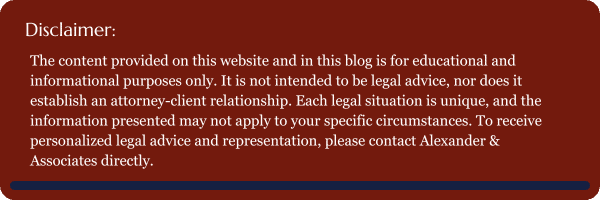Divorce is a challenging and emotionally taxing experience for all parties involved. Among the myriad of emotions that divorce can trigger, one of the most profound and complex is divorce guilt. It’s a sentiment that can grip either or both spouses, often stemming from a sense of responsibility for the end of the marriage. In this blog post, we’ll explore the nature of divorce guilt, its causes, and provide some insights on how to cope with it.
Understanding Divorce Guilt
Divorce guilt is the overwhelming feeling of blame or remorse that can arise during or after a divorce. This guilt can manifest in various ways:
-
Guilt for Ending the Relationship: One of the most common forms of divorce guilt is feeling responsible for the decision to end the marriage. It may be accompanied by thoughts like, “I should have tried harder” or “I failed as a spouse.”
-
Impact on Children: Parents often grapple with guilt related to how the divorce will affect their children. This can include worries about the kids’ emotional well-being, the disruption in their lives, and shared custody arrangements.
-
Financial Concerns: Financial disputes are a significant source of guilt in divorce. Both spouses may feel guilty about the financial strain divorce can cause, including the division of assets, alimony, and child support.
-
Social and Family Pressure: External pressures from friends, family, or societal expectations can also contribute to guilt. Feeling like you’ve let down loved ones or failed to meet societal norms can be particularly challenging.
Causes of Divorce Guilt
Understanding the root causes of divorce guilt can be the first step in addressing it. Some common reasons for experiencing guilt during divorce include:
-
Unrealistic Expectations: Unrealistic expectations about marriage can lead to guilt when things don’t work out as planned. Society often portrays marriage as a lifelong fairy tale, making divorce seem like a personal failure.
-
Lack of Closure: If the divorce process is rushed or handled poorly, it can leave both spouses feeling unresolved, fostering guilt and resentment.
-
Conflict and Hurtful Behavior: Hurtful actions or behaviors during the marriage can lead to guilt once the relationship ends. Some individuals may regret their own actions or feel guilty for the pain they caused their spouse.
-
Parental Instincts: Parents, in particular, may struggle with guilt because they want the best for their children. The fear of disrupting their children’s lives can be overwhelming.
Coping with Divorce Guilt
While divorce guilt is a natural reaction, it’s essential to find healthy ways to cope with these emotions to move forward. Here are some strategies to help:
-
Accept Your Emotions: It’s okay to feel guilty; it’s a normal part of the divorce process. Give yourself permission to feel and process your emotions.
-
Seek Professional Help: Consider therapy or counseling to navigate your feelings. A trained therapist can provide guidance and strategies to manage guilt and other emotions.
-
Open Communication: If possible, maintain open and respectful communication with your ex-spouse. Discussing your feelings and concerns can help both parties heal.
-
Focus on Self-Care: Take care of your physical and mental well-being. Engage in activities that bring you joy, practice self-compassion, and prioritize your health.
-
Reframe Your Perspective: Try to shift your perspective from viewing divorce as a failure to viewing it as an opportunity for growth and a chance to create a healthier, happier future.
-
Co-Parenting Support: If you have children, consider co-parenting classes or support groups to navigate the challenges of shared custody and ensure the best outcome for your kids.
Conclusion
Divorce guilt is a complex and challenging emotion to navigate, but it’s crucial to remember that it’s a common part of the divorce journey. By understanding the causes, seeking support, and practicing self-compassion, you can gradually heal and move forward with your life. Divorce may mark the end of a marriage, but it can also signify the beginning of a new chapter filled with growth, self-discovery, and the potential for a happier future.
Are you considering divorce? Alexander & Associates, expert divorce lawyer Fort Collins Co, can help! Contact us today.




0 Comments